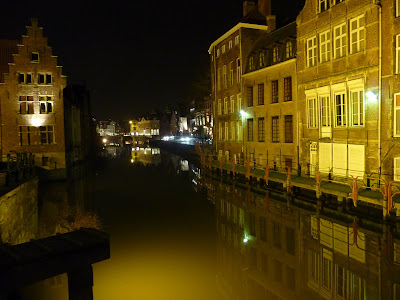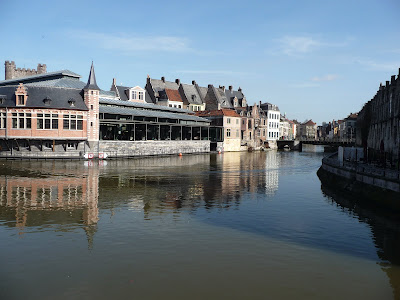Pensamentos líquidos 113
Trivialidades 238
Poemas 47
Recomendações 63
God loves his children / God loves his children yeah
Pensamentos líquidos 112
Pensamentos líquidos 111
Anthony Bourdain and Lobo Antunes
The ones who know me, know well I am not nationalistic. I just think there are things which matter and nations are not one of those things. But nationalism or regionalism are used as proxies to find patterns. And that is difficult to fight against. But this is actually not what I want to talk about. This is only the disclaimer to justify that the reason why I am posting this post is not a biased nationalistic one.
So, I like Anthony Bourdain and his shows. They’re fun and it is interesting to get to know cultures through their food. So, just for that, I could suggest this one about Lisbon. But then, then, we have the food. And even though I would not really eat the pork sandwiches or (no longer) the blood sausages, there is the food. There is the sea food and the delicatessen and, of course, the “ginginha”.
[Anthony Bourdain in Lisbon]
Homenagens 61
Covers melhores do que o original 5
Lilac wine
“Written by James Shelton (words and music) in 1950. It was introduced by Hope Foye in the short-lived theater musical revue Dance Me a Song.”
[Infelizmente, não consegui encontrar uma gravação do original.]
Versão de Jeff Buckley
Apontamento fugazes 207
Amor
«Não havia comida para bebés em Malanje e a nossa filha tornou a Portugal magra e pálida, com a cor amarelada dos brancos de Angola, ferrugenta de febre, um ano a dormir em cama de bordão de palmeira junto das nossas camas de quartel, estava a fazer uma autópsia ao ar livre por via do cheiro quando me chamaram porque desmaiaras, encontrei-te exausta numa cadeira feita de tábuas de barrica, fechei a porta, acocorei-me a chorar ao pé de ti repetindo Até ao fim do mundo, até ao fim do mundo, até ao fim do mundo, certo da certeza de que nada nos podia separar, como uma onda para a praia na tua direcção vai o meu corpo, exclamou o Neruda e era assim connosco, e é assim comigo só que não sou capaz de to dizer ou digo-to se não estás, digo-to sozinho tonto do amor que te tenho, demais nos ferimos, nos magoámos, nos tentámos matar dentro de cada um, e apesar disso, subterrânea e imensa, a onda continua e como para a praia na tua direcção o trigo do meu corpo se inclina, espigas de dedos que te buscam, tentam tocar-te, se prendem na tua pele com força de unhas, as tuas pernas estreitas apertam-me a cintura, subo a escada, bato ao trinco, entro, o colchão conhece ainda o jeito do meu sono, penduro a roupa na cadeira, como uma onda para a praia como uma onda para a praia como uma onda para a praia na tua direcção vai o meu corpo.»
«Talvez mesmo, meu amor, que compre uma tapeçaria de tigres como a do Senhor Ferreira: podes achar idiota mas preciso de qualquer coisa que me ajude a existir.»
António Lobo Antunes, «Memória de elefante», edição comemorativa 1979-2009 D. Quixote 2009, pp. 92 e 156
Pensamentos líquidos 110
Externalidades positivas dos Pearl Jam
Já cheguei a escrever sobre os motivos pelos quais as artes devem ser subsidiadas. Em termos muitos simples, uma solução natural de mercado tende a providenciar quantidades sub-óptimas de arte, uma vez que não internaliza fenómenos como as externalidades.
Ora, eu nem quero falar muito tecnicamente sobre isto agora. Mas posso afiançar-vos. Hoje, o meu empregador usufruiu de externalidades positivas criadas pela música dos Pearl Jam; externalidades essas pelas quais naturalmente não pagou. Não fossem eles e teria vindo para casa a meio do dia com um nó irresolúvel, gigante na cabeça.
Apontamento fugazes 206
Names and adjectives
Katharine: l wanted to meet the man who could write a long paper with so few adjectives.
Almasy: Well, a thing is still a thing, no matter what you place in front of it.Big car, slow car, chauffeur-driven car.
Madox: Broken car.
Almasy: lt’s still a car.
Geoffrey Clifton: Not much use, though.
Katharine: Love ? Romantic love, plutonic love, filial love. Quite different things, surely.
Geoffrey Clifton: Uxoriousness. That’s my favourite kind of love. Excessive love of one’s wife.
Almasy: Now there you have me.
[From the English Patient, d. Anthony Minghella]
So, a broken car is still a car. And I say, a charming asshole is still an asshole.
Momentos de poesia 15
Apontamentos fugazes 205
Desconhecido
Poemas 46
I want to escape from reality
No more real, brutal truths
I want ponies in a rainbow
I want to drink out of the blues
I want to disappear completely
[Fevereiro de 2012]
Melhores temas de sempre 11
Bachelorette, from Homogenic, 1997
Apontamentos fugazes 204
«Egor was speaking again: ‘But most people – or let us say, most writers – will never reach The All. They will never even become geniuses. They will never become anything. I… I am one of them. But at least I know this and try to express this powerlessness through everything I write. I know that nothing can be said, that no one expects you to say anything, but that you must say it. I know you must somehow go against the injustice of being human and being unable to reach The All’.»
Mircea Cărtărescu, «Nostalgia; REM», New Directions 2005, p. 252
Recomendações 62
Apontamentos fugazes 203
A – R., o que é que vês neste quadro?
R – Desespero e solidão.
A – Sim, mas o que é que está exactamente pintado?
R – Ah, ok…. Vejo aquilo que deveria ser uma nuvem, mas na verdade me parecem lábios. Vejo uma escarpa.
A – E não vês a pessoa?
R – Oops.
Arquitectura, artes plásticas e design 15

[Edvard Munch, Vampire, 1893]
A propósito da exposição de Munch, no Schirn, em Frankfurt.
Poemas 45
Sinto falta de ti,
como se tivesse perdido
um bocado de mim.
Um bocado de mim,
que não queria perder.
Sinto falta de ti,
enquanto espero
as palavras perfeitas
de que só tenho lembranças,
na dor que mastigo.
Sinto falta de ti
nesta inconstante espera
para que a saudade
desapareça do meu corpo
e a dor se esqueça de ti.
Sinto falta de ti
E reabre as fendas
de dores passadas,
saber que nem sequer
te lembras de mim.
[Fevereiro de 2012]
Poemas 44
You call me and I go
Against my best judgment
You call me and I go
In an urge I can’t control
I drift around
For you to find me
When I should be
Escaping from your curse
You call me and I go
Into that dark place
Where we make sense
You call me and I go
And yet I’m all alone
[Dezembro de 2011]
Melhores temas de sempre 10
Poses – live, from Poses, 2001
Apontamentos fugazes 202
Apontamentos fugazes 201
W - No. But I'm not too sure you have two feet on the ground either.
A - You mean... some people do?!
É exactamente isto...
Ally McBeal, "One hundred tears away"









